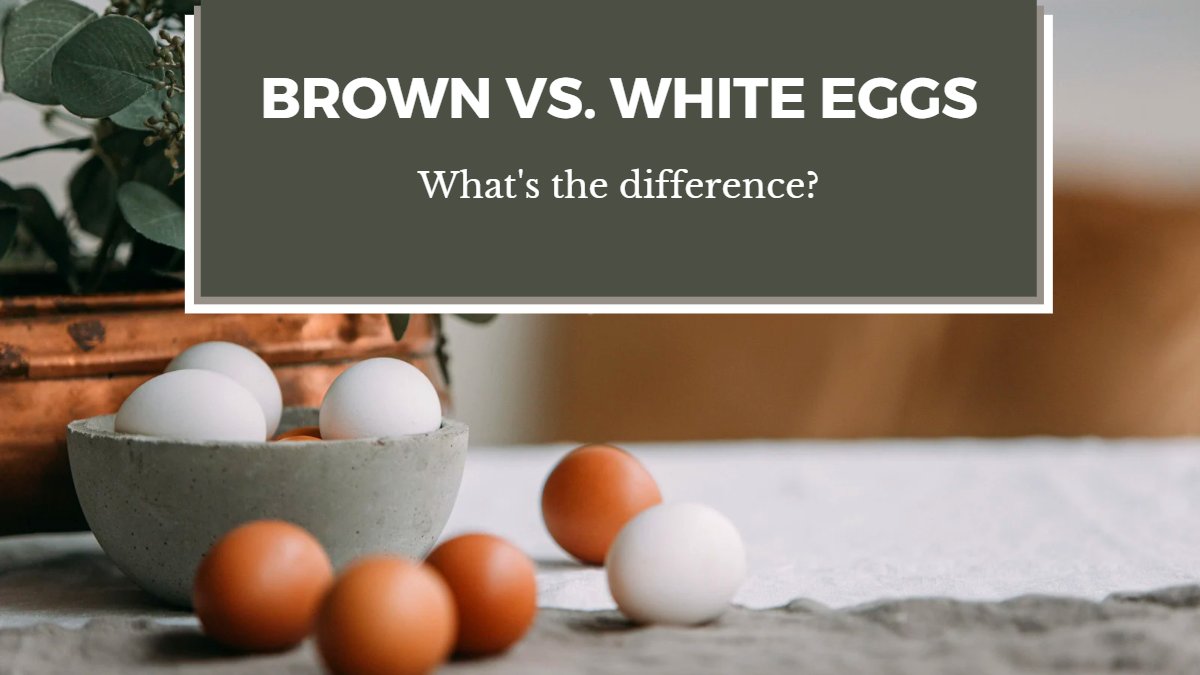
Eggs are a staple food in many households and are used in many dishes. They are versatile ingredients and can be used in a variety of dishes, from breakfast to dessert. However, not all eggs are created equal. They come in a variety of colors, including white, brown, and even blue. Eggs are a valuable source of protein, vitamins and minerals. The two most common types of eggs are brown and white, and understanding the difference between them is important for making informed decisions about the foods you eat.
In this article, we’ll explore the differences between brown and white eggs and help you decide which is right for you.
The difference between brown eggs and white eggs
Brown and white eggs differ in shell color. What exactly is the reason behind this color difference?
Simple answer. The breed of chicken determines the color of the egg.
Also read | What is the difference between curd and buttermilk?
For example, white Leghorn hens and Andalusians lay eggs with white shells, but Golden Comet hens and Rhode Island Reds lay eggs with brown shells.
There are many breeds of chicken that also lay blue and green eggs. The different colors of eggs come from pigments produced by chickens. Protoporphyrin IX is the name of the main pigment found in brown eggshells. Heme, the substance that gives blood its red color, serves as its main component.

However, eggshell color can also vary between hens of the same breed. In such a case, it depends on the genetic dominance of the individuals.
However, genetics is the main factor determining egg color, other factors can also have an impact.
Also read | What is the difference between lemon and lime?
For example, the hen’s environment, food, and stress level can all have some influence on the egg’s shell color. While the color itself may not necessarily change as a result of these circumstances, they may make the tone lighter or darker.
Are brown eggs better than white eggs?
There is a misconception that brown eggs are generally considered to be of higher quality than white eggs. It’s simply wrong.
Also read | What is the difference between Momos and Dumplings?
The misconception stems from the fact that white eggs are usually cheaper than brown eggs. Therefore, white eggs are generally considered to be of lower quality and brown eggs are of higher quality. Brown eggs have a higher price because brown hens are usually larger in size and lay fewer eggs than white hens, and brown eggs are more expensive. Because of this, brown eggs must be sold for more money to cover the extra costs.
Both brown and white eggs are similar except for shell color. Studies reveal that eggshell color has little effect on egg composition or quality.

White and brown eggs are both nutritious foods. An average egg has less than 80 calories and is packed with vitamins, minerals and high-quality protein. This implies that egg health has little to do with shell color.
Also read | What is the difference between orange and tangerine?
The color of the shell may not affect the nutritional value of the egg, however, other factors can have a significant impact. For example, the hen’s living environment is an important factor, because the amount of vitamin D in eggs from free-range hens is three to four times higher than in eggs from conventionally raised hens.
The bottom line is that the main and only difference between brown eggs and white eggs is just the color of their shell. The nutritional differences between brown and white eggs, if any, are negligible. Both brown and white eggs are good for a healthy diet.
Related | Plant-based meat: What it is and why people eat it | Explain
Categories: Optical Illusion
Source: pagasa.edu.vn